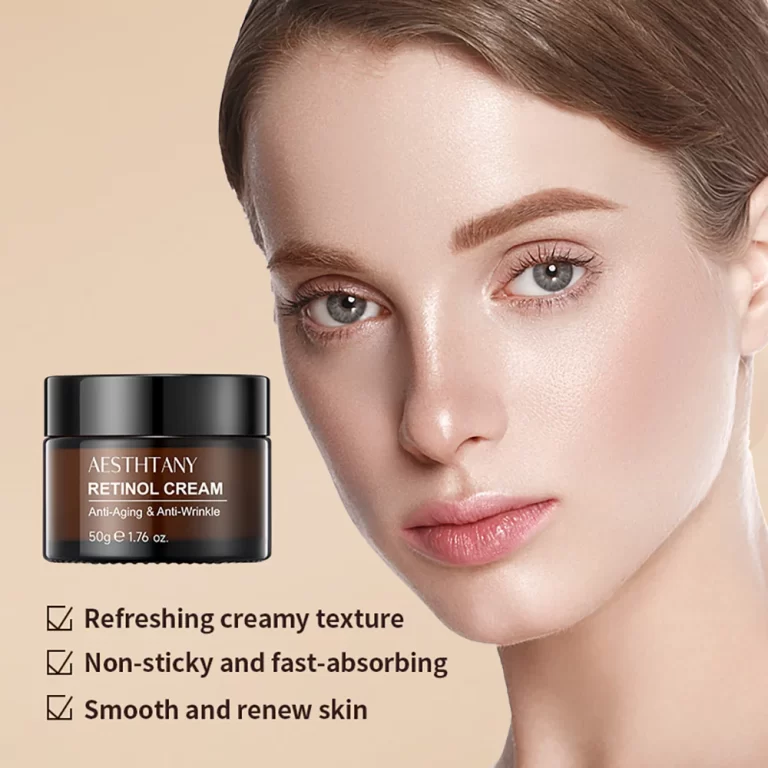
Night Face Cream: Your Skin’s Nocturnal Ally
Understanding the Importance of Night Face Creams
Night face cream play a crucial role in skincare routines, offering targeted nourishment and repair while you sleep. These specialized formulations take advantage of the skin’s natural regeneration process, which peaks during nighttime hours. As the body rests, skin cells work overtime to repair daily damage from environmental stressors, UV radiation, and pollution. Night creams are typically richer and more concentrated than their daytime counterparts, providing intense hydration and active ingredients that might be too heavy for daytime use.
They often contain potent anti-aging compounds, such as retinoids, peptides, and antioxidants, which work to combat fine lines, wrinkles, and uneven skin tone. Additionally, night creams help to replenish the skin’s moisture barrier, which can become compromised throughout the day. By applying a night cream before bed, individuals can wake up to skin that looks and feels refreshed, plump, and revitalized. The consistent use of night creams can lead to significant improvements in skin texture, tone, and overall health over time. Furthermore, night creams can be tailored to address specific skin concerns, making them a versatile and essential component of any comprehensive skincare regimen.
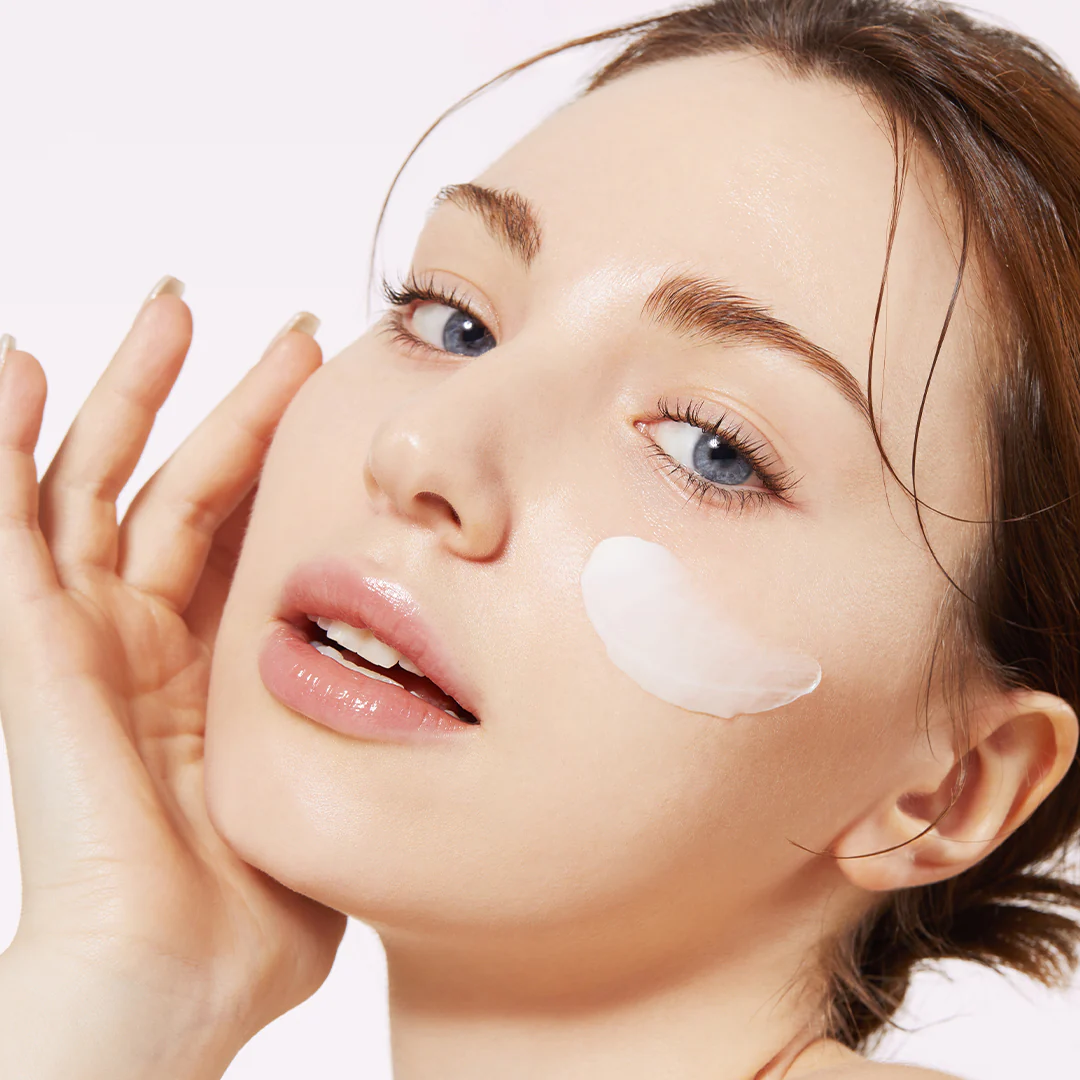
Key Ingredients in Effective Night Creams
Night face creams harness the power of various active ingredients to deliver optimal results. Retinol, a derivative of vitamin A, stands out as a powerhouse ingredient in many night creams. It accelerates cell turnover, stimulates collagen production, and helps to fade dark spots and fine lines. Hyaluronic acid, another common component, acts as a moisture magnet, drawing water into the skin and plumping it from within. Peptides, short chains of amino acids, support collagen synthesis and can improve skin firmness and elasticity. Antioxidants like vitamins C and E protect the skin from free radical damage and brighten the complexion.
Niacinamide, a form of vitamin B3, helps to strengthen the skin barrier, reduce inflammation, and even out skin tone. Many night creams also incorporate natural oils such as jojoba, argan, or rosehip, which provide deep nourishment and help to lock in moisture. Alpha-hydroxy acids (AHAs) like glycolic or lactic acid offer gentle exfoliation, promoting cell renewal and improving skin texture. Ceramides, naturally occurring lipids in the skin, are often included to reinforce the skin’s protective barrier. Some formulations feature adaptogens like ginseng or mushroom extracts, which help the skin adapt to stress and environmental changes. The combination and concentration of these ingredients vary among products, allowing users to choose a night cream that best suits their specific skin concerns and goals.
Choosing the Right Night Cream for Your Skin Type
Selecting the appropriate night face cream requires consideration of individual skin types and concerns. For those with dry skin, rich, emollient creams containing ingredients like shea butter, ceramides, and hyaluronic acid provide much-needed hydration and help to prevent moisture loss. Oily or acne-prone skin benefits from lightweight, non-comedogenic formulas that incorporate ingredients like salicylic acid or niacinamide to control excess oil and prevent breakouts. Individuals with sensitive skin should opt for gentle, fragrance-free night creams that focus on soothing ingredients such as aloe vera, chamomile, or allantoin.
Combination skin types may prefer gel-cream textures that offer balanced hydration without feeling heavy. For mature skin, night creams with potent anti-aging ingredients like retinol, peptides, and antioxidants can help address wrinkles, fine lines, and loss of firmness. Those with normal skin have the flexibility to choose based on specific concerns or desired benefits. It’s essential to consider any existing skin conditions or allergies when selecting a night cream. Reading product labels carefully and performing patch tests can help prevent adverse reactions. Additionally, individuals may need to adjust their night cream choice seasonally, as skin needs can change with weather conditions. Consulting with a dermatologist can provide personalized recommendations based on skin type, concerns, and goals.
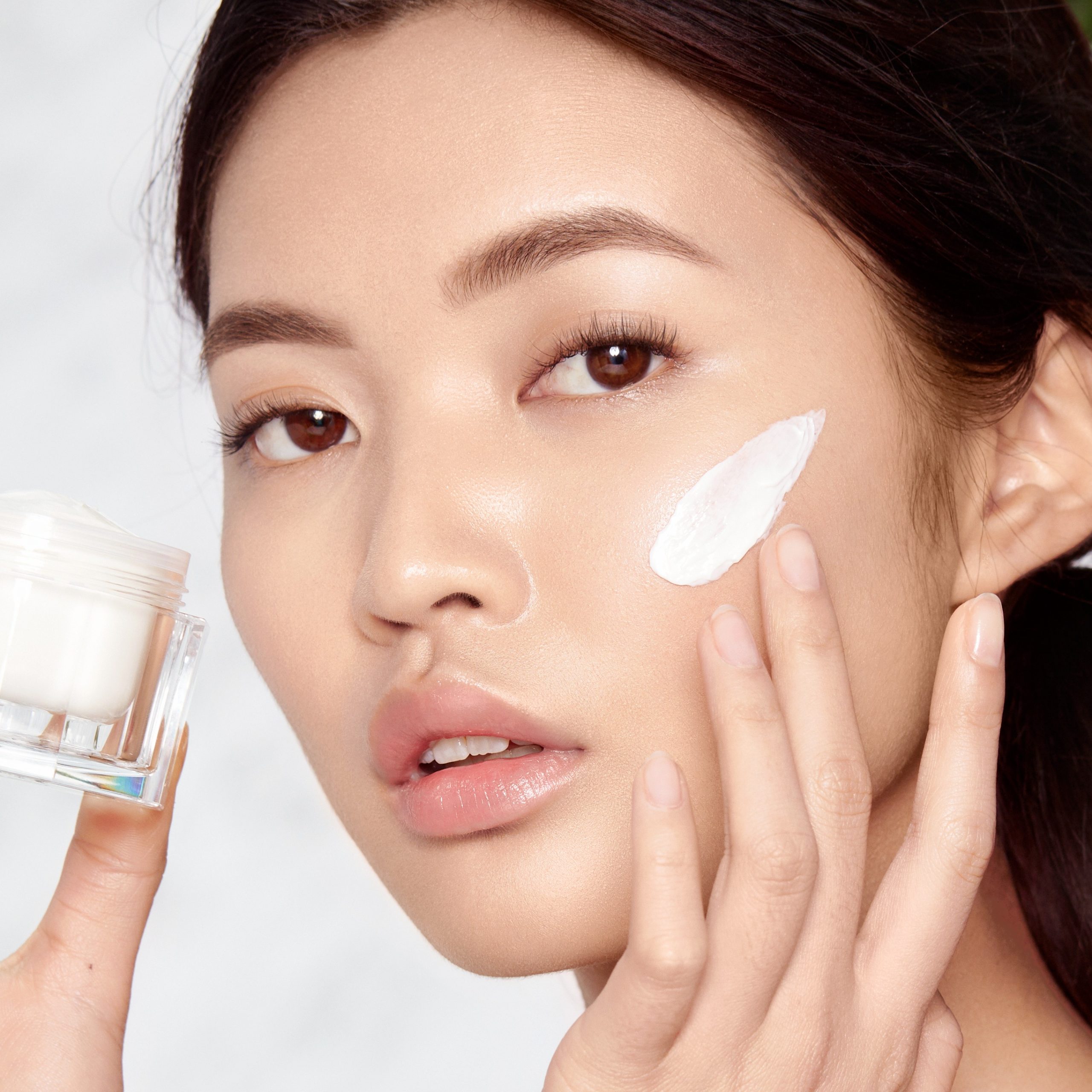
Application Techniques for Maximum Benefits
Proper application of night face cream ensures maximum absorption and efficacy of the product. Begin by thoroughly cleansing the face to remove all traces of makeup, dirt, and oil. Gently pat the skin dry with a clean towel, leaving it slightly damp to enhance product absorption. If using a toner or essence, apply these products first. Take a small amount of night cream, about the size of a pea, and warm it between your fingertips. This step helps to melt the product slightly, making it easier to spread and absorb. Apply the cream using gentle upward motions, starting from the center of the face and moving outward.
Be careful not to tug or pull at the skin, especially around the delicate eye area. Pay special attention to areas prone to dryness or fine lines, such as the forehead, around the mouth, and the neck. Gently massage the cream into the skin using circular motions, which can help stimulate blood circulation and enhance absorption. Allow the product to fully absorb before lying down to prevent transfer onto pillowcases. For those using multiple skincare products, apply the night cream as the final step in the routine to seal in the benefits of other products. Consider using a facial massage tool or gua sha to further enhance product penetration and promote lymphatic drainage. Consistency is key; apply the night cream every evening for best results.
The Science Behind Nighttime Skin Repair
The effectiveness of night face creams is closely tied to the skin’s natural circadian rhythm and repair processes. During sleep, the body enters a state of rest and recovery, and this extends to the skin as well. Nighttime sees an increase in skin cell regeneration and collagen production, making it an ideal time for targeted skincare interventions. Blood flow to the skin increases during sleep, allowing for better nutrient delivery and toxin removal. The skin’s permeability also increases at night, making it more receptive to topical treatments. This enhanced absorption allows the active ingredients in night creams to penetrate more deeply and work more effectively.
Additionally, the skin loses more water at night through a process called transepidermal water loss (TEWL), making rich, hydrating night creams particularly beneficial. The body’s production of melatonin, often referred to as the sleep hormone, also plays a role in skin repair. Melatonin acts as an antioxidant, helping to protect skin cells from oxidative stress. Some night creams even incorporate synthetic melatonin to enhance this protective effect. The absence of UV radiation and environmental stressors during nighttime hours allows the skin to focus on repair rather than defense. Understanding these nighttime processes highlights the importance of using specialized night creams to support and enhance the skin’s natural repair mechanisms.
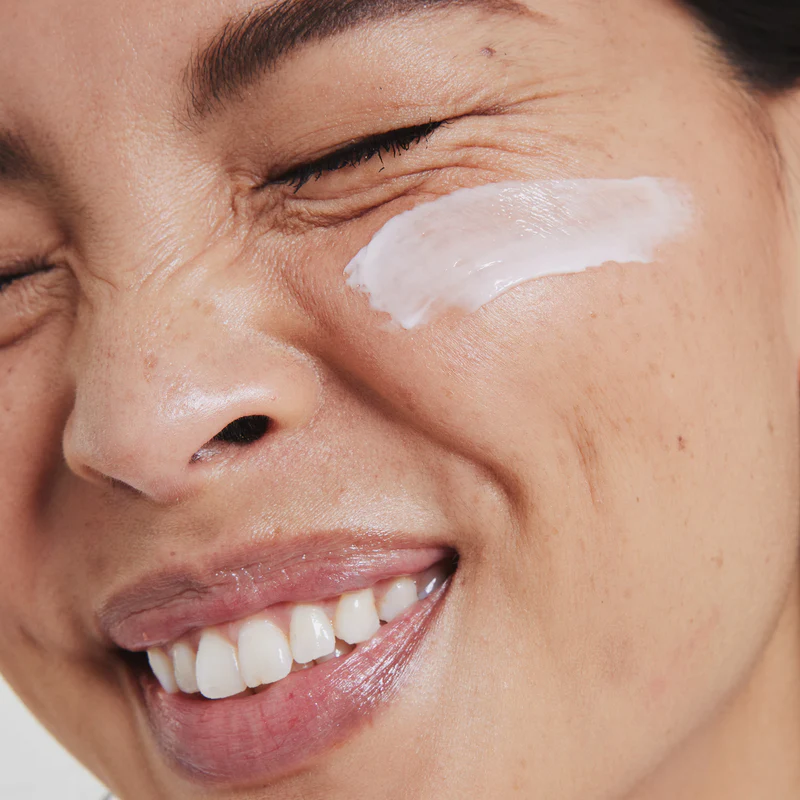
Common Mistakes to Avoid with Night Creams
While night face creams offer numerous benefits, certain common mistakes can hinder their effectiveness. One frequent error is applying too much product. Using excessive amounts of night cream doesn’t increase its benefits and can lead to clogged pores or skin irritation. Another mistake is not allowing enough time between application and sleep. Applying night cream immediately before lying down can result in the product transferring to pillowcases rather than absorbing into the skin. Some individuals mistakenly use their night cream during the day.
Night creams are often too heavy for daytime use and may not contain adequate sun protection. Conversely, using day creams at night doesn’t provide the concentrated nourishment that night-specific formulas offer. Neglecting to properly cleanse the face before applying night cream can trap dirt and bacteria, potentially leading to breakouts. Inconsistent use is another common pitfall; night creams work best when used regularly over time.
Some people make the mistake of applying night cream to the eye area, which requires a specialized eye cream due to the delicate nature of the skin in this region. Failing to patch test new products or introducing multiple new products simultaneously can make it difficult to identify the source of any skin reactions. Lastly, not adjusting night cream usage based on seasonal changes or evolving skin needs can result in suboptimal results. By avoiding these common mistakes, individuals can maximize the benefits of their night cream and achieve better skincare outcomes.
Combining Night Creams with Other Skincare Products
Integrating night face creams into a comprehensive skincare routine requires careful consideration of product compatibility and order of application. Generally, night creams should be applied as the final step in an evening skincare regimen. Start with a gentle cleanser to remove impurities, followed by toner if desired. Serums, which contain concentrated active ingredients, should be applied before the night cream to allow for better penetration. If using multiple serums, apply them from thinnest to thickest consistency. For those incorporating retinoids or other potent active ingredients, it’s important to introduce them gradually and monitor the skin’s response.
Some individuals prefer to alternate nights between retinoids and other active ingredients to minimize potential irritation. Eye creams should be applied before night cream, using a gentle tapping motion to avoid pulling the delicate skin around the eyes. If using face oils, these can be mixed with the night cream or applied afterwards, depending on personal preference and skin needs. For those with specific skin concerns, spot treatments can be applied before the night cream. It’s crucial to allow each product to absorb fully before applying the next to prevent pilling and ensure maximum efficacy. When introducing new products into a routine, add them one at a time to easily identify any adverse reactions. By thoughtfully combining night creams with other skincare products, individuals can create a synergistic routine that addresses multiple skin concerns simultaneously.
The Role of Night Creams in Anti-Aging Skincare
Night face creams play a pivotal role in anti-aging skincare routines, offering targeted solutions for various age-related skin concerns. These formulations often contain higher concentrations of active ingredients that work to combat signs of aging while the skin is in its natural repair mode. Retinoids, a cornerstone of anti-aging skincare, are frequently found in night creams due to their ability to accelerate cell turnover and stimulate collagen production. This helps to reduce the appearance of fine lines, wrinkles, and uneven skin texture. Peptides, another common anti-aging ingredient, support the skin’s structural proteins, promoting firmness and elasticity.
Antioxidants in night creams work to neutralize free radicals, preventing oxidative stress that can lead to premature aging. Many anti-aging night creams also incorporate ingredients that target hyperpigmentation, such as kojic acid or vitamin C, helping to fade age spots and even out skin tone. Hydrating components like hyaluronic acid and ceramides plump the skin, temporarily reducing the appearance of fine lines and creating a more youthful complexion. Some advanced formulations include ingredients that support the skin’s natural production of growth factors, further enhancing its regenerative capabilities. The consistent use of anti-aging night creams, combined with proper sun protection during the day, can lead to significant improvements in skin appearance and help to slow the visible signs of aging.
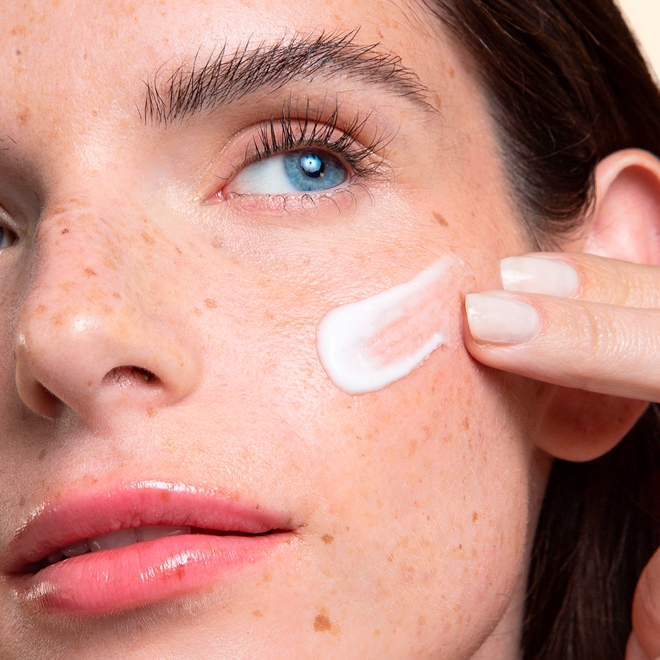
Natural and Organic Night Cream Options
The growing demand for natural and organic skincare has led to an increase in night face cream options that prioritize plant-based and naturally derived ingredients. These formulations appeal to consumers seeking alternatives to synthetic chemicals and preservatives. Natural night creams often feature botanical oils like jojoba, argan, or rosehip, which provide intense nourishment without clogging pores. Plant extracts such as aloe vera, chamomile, and green tea offer soothing and antioxidant properties. Some natural formulations incorporate adaptogens like ashwagandha or ginseng, which help the skin adapt to stress and environmental factors.
Organic night creams take this concept further by using ingredients that are certified organic, meaning they are grown without synthetic pesticides or fertilizers. These products often appeal to those with sensitive skin or those concerned about the environmental impact of their skincare choices. Natural and organic night creams may use plant-derived alternatives to common synthetic ingredients, such as bakuchiol as a natural retinol alternative. While natural and organic options can be highly effective, it’s important to note that “natural” doesn’t always mean gentle or suitable for all skin types. Some natural ingredients can be potent or potentially allergenic. As with any skincare product, patch testing is recommended, and individuals should choose products based on their specific skin needs rather than solely on the “natural” or “organic” label.
Future Trends in Night Cream Formulations
The field of night face creams continues to evolve, driven by advancements in skincare science and changing consumer preferences. One emerging trend is the development of “smart” night creams that adapt to individual skin needs, potentially using microencapsulation technology to release active ingredients gradually throughout the night. Personalized formulations, tailored to specific genetic profiles or skin concerns, are likely to become more prevalent.
The integration of probiotics and prebiotics in night creams is gaining traction, aiming to support the skin’s microbiome for improved overall skin health. Sustainability is becoming increasingly important, with brands focusing on eco-friendly packaging and responsibly sourced ingredients. Some companies are exploring the use of upcycled ingredients, giving new life to botanical byproducts from the food industry. The concept of “skinamalism” – minimalist skincare routines with multifunctional products – may lead to the development of more comprehensive night creams that address multiple concerns simultaneously.
Advances in delivery systems, such as nanoparticles or liposomes, promise to enhance the efficacy of active ingredients by improving their penetration into the skin. There’s also growing interest in chronobiology-based formulations that work in harmony with the skin’s natural circadian rhythms. As consumer awareness of blue light exposure increases, night creams that protect against digital aging may become more common. These future trends in night cream formulations aim to provide more effective, personalized, and sustainable solutions for nighttime skincare.
More Stories
Liquid Foundation for Dry Skin: Hydrating Formulas
Introduction to Dry Skin and Foundation Needs Dry skin can feel tight, flaky, and uncomfortable. Choosing the right liquid foundation...
Best Liquid Foundation for Oily Skin: Long-Lasting Coverage
What is Oily Skin and Why Does it Matter for Foundation? Oily skin is a common skin type characterized by...
Dior Liquid Foundation: Combining Skincare with Dior Foundation
Introduction to Dior Liquid Foundation Dior, a leading name in the beauty industry, offers a range of high-end makeup products....
Choosing Liquid Foundation for Combination Skin Makeup
Introduction to Combination Skin and Makeup Challenges Combination skin creates unique makeup challenges. This skin type has both oily and...
Benefits of Bareminerals Liquid Foundation: A 2025 Guide
Introduction to Bareminerals Liquid Foundation Bareminerals liquid foundation is a standout beauty product. It's known for its skin-loving ingredients and...
Key Benefits of Laura Geller Liquid Foundation: Flawless Skin Tips
Introduction to Laura Geller Liquid Foundation Laura Geller liquid foundation stands out in the beauty world. Its unique formula offers...
